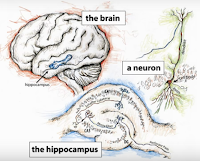
In every act of caregiving lives an inner world—one often unseen, yet deeply felt. For caregivers, particularly those supporting loved ones with dementia, this inner life is marked by emotional complexity. It is a landscape where love and devotion may live side by side with guilt, frustration, and loneliness.
Guest article by Roy Remer
To the outside world, caregiving can appear straightforward: tasks completed, medications given, meals prepared. But the work of caregiving extends far deeper. It reaches into the caregiver’s thoughts, emotions, and spirit. Understanding this inner life is essential, because it shapes not only how caregivers show up for others, but also how they sustain themselves through the journey.
Love at the Core
At the heart of caregiving is love. Caregivers often step into the role because of deep bonds with a spouse, parent, sibling, or friend. This love fuels extraordinary acts of patience and devotion—staying up through the night, repeating the same answers dozens of times, or soothing agitation with gentle words.
Yet love, when stretched over time and stress, can also feel complicated. Caregivers may wrestle with grief over losing who their loved one once was, or guilt for feeling tired and resentful despite their devotion. Acknowledging this complexity is important: love in caregiving is not always simple or pure—it is layered, imperfect, and deeply human.
The Weight of Guilt
Guilt is one of the most common companions of caregivers. It can show up in many forms:
- Guilt for feeling impatient or angry.
- Guilt for needing time away.
- Guilt for not doing enough, even when doing everything possible.
Caregivers often hold themselves to impossible standards. They may believe they should always be calm, always available, always strong. Yet caregiving is not sustainable when built on perfection.
Mindfulness helps soften guilt by inviting caregivers to notice their thoughts and emotions without judgment. Instead of harsh self-criticism, caregivers can gently remind themselves: I am human. I am doing the best I can. This shift opens space for compassion—both for themselves and their loved ones.
Isolation and Loneliness
Many caregivers, particularly those supporting loved ones with dementia, experience profound isolation. Friends may drift away, social outings become difficult, and the constant demands of care leave little room for connection. The caregiver may feel as though the world has shrunk to the limits of their home and the needs of their loved one.
This isolation can be one of the heaviest burdens. Without opportunities to share their struggles, caregivers may feel invisible or forgotten.
Community, therefore, is vital. In Zen Caregiving Project’s programs, caregivers often describe the relief of simply being heard by others who understand. Sharing experiences—whether of exhaustion, grief, or small moments of joy—reminds caregivers they are not alone. This sense of connection can be as healing as any practical support.
Compassion Fatigue and Burnout
Compassion is at the heart of caregiving. But when given without replenishment, it can lead to compassion fatigue—a state of emotional exhaustion where empathy begins to fade. Over time, caregivers may feel numb, irritable, or detached from the very person they are trying to support.
Burnout emerges when physical, emotional, and mental demands outstrip resources. It often shows up as chronic fatigue, difficulty concentrating, or even physical illness.
Acknowledging these risks is not a sign of weakness—it is a step toward sustainability. Mindfulness and self-compassion offer tools to notice when fatigue is rising and to take small steps toward renewal. Even brief pauses for breath, rest, or reflection can begin to restore balance
The Loss of Identity
One of the quietest, yet most painful, experiences of caregiving is the erosion of personal identity. Caregivers often set aside careers, hobbies, friendships, and even their own health to prioritize their loved one. Over time, the caregiver’s sense of self may narrow into a single role: “I am only a caregiver.”
This loss can feel like a kind of invisibility—who the caregiver once was begins to fade. And yet, the inner life also holds potential for rediscovery. By carving out even small moments of personal expression—reading, gardening, journaling, or connecting with friends—caregivers can keep alive the parts of themselves beyond the caregiving role.
The Emergence of Resilience
Amidst these struggles, something extraordinary also emerges: resilience. Caregivers discover strengths they did not know they had—the ability to stay present in difficulty, to adapt to constant change, and to love in the face of loss.
This resilience is not about stoicism or denial. It is about meeting each moment as it is, with openness and courage. Mindfulness supports this resilience by teaching caregivers to return repeatedly to the present moment, where clarity and calm are always possible.
In fact, many caregivers reflect that while caregiving was among the hardest experiences of their lives, it also deepened their compassion, patience, and appreciation for life’s fleeting beauty.
Nourishing the Inner Life
To sustain themselves, caregivers must seek opportunities to tend to their inner lives with as much care as they tend to their loved ones. This means:
- Practicing self-compassion: speaking kindly to oneself in moments of struggle.
- Building community: seeking support groups, friendships, or courses where sharing is possible.
- Creating small rituals of care: lighting a candle, breathing mindfully, or journaling feelings at the end of the day.
- Remembering identity beyond caregiving: nurturing hobbies, relationships, or spiritual practices that keep a vibrant sense of self alive.
By tending to the inner life, caregivers create balance. They discover that amidst exhaustion and grief, there is room for joy, connection, and renewal.
Reflection
The inner life of caregivers is complex—filled with love, guilt, fatigue, resilience, and profound growth. It is a journey few can fully understand unless they have walked it themselves. Yet when caregivers pause to acknowledge their inner experience, they honor the depth of their humanity.
At Zen Caregiving Project, we believe that supporting caregivers means supporting both the outer tasks of care and the inner emotional world that carries them. Through mindfulness, compassion, and community, caregivers can not only survive but also find meaning and strength in the journey.
To all caregivers reading this: your inner life matters. Your struggles are real, your resilience is profound, and your humanity is worthy of care.
Roy Remer is Executive Director of Zen Caregiving Project, a nonprofit dedicated to bringing mindfulness and compassion to caregiving. With decades of experience supporting caregivers, Roy leads programs that explore resilience, presence, and self-compassion, helping caregivers sustain themselves while navigating the profound challenges and rewards of caregiving.
For a related perspective, read:

When the Going Gets Tough Take a Caregiver Respite
Disclaimer: This story is auto-aggregated by a computer program and has not been created or edited by healthlydays.
Publisher: Source link











